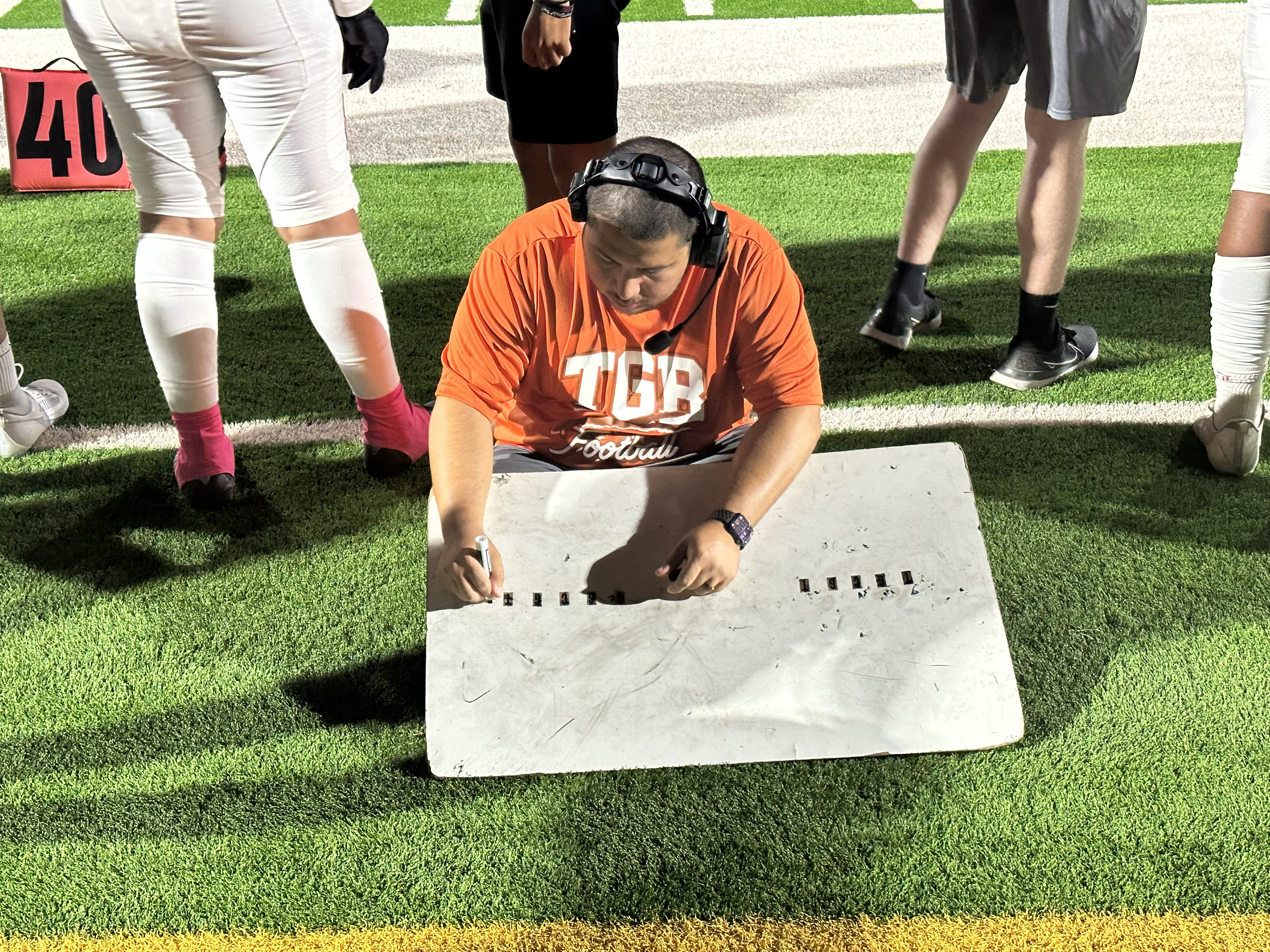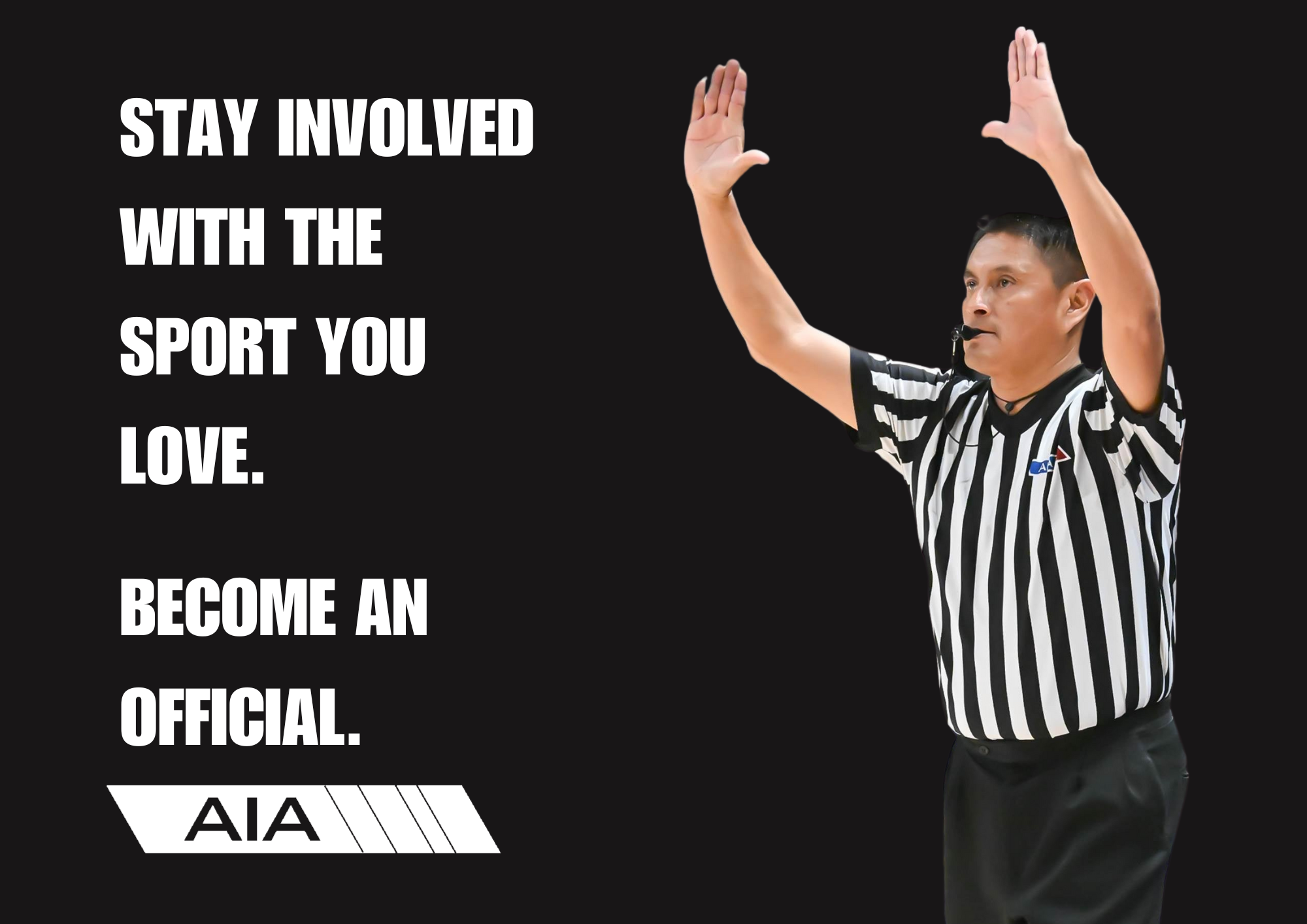Bruins football culture: Seeking success on the field, in the classroom
November 29, 2023 by Dylan Ledahl, Arizona State University

Dylan Ledahl is an ASU Cronkite School of Journalism student assigned to cover Trevor G. Browne High School for AZPreps365.com
Teams that have a solid culture generally are more successful, experience fewer obstacles, and will have players who commit more often to team goals. Building a solid team culture is crucial to a team’s success, as it keeps team members engaged. And the players can have a positive impact on the team.
Almost four years ago, Trevor G. Browne was in search of a new football head coach as it only had one winning season from 2010-2020. Francisco Rangel got the job.
Rangel was a football player and graduated from Kellis High School. He started his coaching journey as an intern with the Arizona Rattlers, a professional Indoor Football League team.
During his internship, Rangel got advice from the Rattlers head coach that he holds onto.
“Coach [Kevin] Guy never talked to interns,” Rangel said. “But he told me to make sure I have something sweet on me before a game because as a coach, you will always have a sour taste in your mouth.”
After a couple of years with the Rattlers, Rangel went to coach at Paradise Valley High School as a varsity linebacker coach. After Paradise Valley, he went to Cactus High School to be the varsity offensive line coach. He is now the head coach at Browne.
According to Ryan Hedstrom with the Association for Applied Sport Psychology, “One of the most important jobs as a coach is to develop and foster a team culture. This culture is really the foundation of all effective teams. As a coach, this culture is your vision put into action.”
Culture is important to Rangel because of what it means to a football team.
“Culture sets your tone,” Rangel said. “It sets your function. The culture at Cactus was amazing, then when I got to Browne, I quickly learned that Browne’s culture was nowhere near Cactus’s culture.”
This was innitially difficult for Rangel when he went to Trevor G. Browne from Cactus: Two weeks after he was hired, the world shut down due to the COVID-19 pandemic.
“In 2020, we had zooms as a team,” Rangel said. “I didn’t get to meet my players for months; it wasn’t until July I first met them in person. It was really hard as a coach, to not see your players when you’re trying to create a culture.”
Browne defensive line coach James Bagley was hired the same year Rangel was. He said Rangel's first steps to creating his team's culture was setting the foundation of what he expected.
“I feel like Rangel is very upfront on what he expects, which is how he is able to get kids to buy into his culture," Bagley said. "He holds the kids to a high expectation, and they respond to it."
The three games in a six-week span during the 2020-21 season ended up being crucial for the development of Rangel’s culture.
“My first season when we played those three games was important because that is when I noticed the kids started to buy into my coaching,” Rangel said. “Our first game, we got smoked by Fairfax. In our next game, we lost, but forced overtime to a very good South Mountain team. We won our last game against Alhambra.”
Rangel’s second season finished 6-4 and was the best season the Bruins have had in more than 10 years. Senior quarterback Alex Rivera IV and junior defensive lineman Ralph Bernard led the team, abd both play football at the next level: Rivera IV at Willamette University in Salem, Oregon, and Bernard at Colgate University in Hamilton, New York.
Browne currently has 18 students on scholarship, which includes division l-lll and junior college. Rangel holds onto that as an accomplishment.
“That’s more than anyone else in Phoenix Union,” Rangel said. “We are finally getting to the point where alumni are calling, telling me they are getting their first college start this weekend. I think our kids buy into that. They have seen guys in front of them do it and now it is their turn to carry on that legacy.”
Rangel said he wants his players to succeed academically just as much as athletically. He makes all of the freshman football players do study hall four days a week and if the upperclassmen are passing all of their classes with C’s or better, they don’t have to do study hall.
The last two season, Rangel's varsity teams have been relatively young. In those two campaigns, the Bruins went 5-5 and 3-7.
In that period, now-senior quarterback Nico Alvarez transferred from Shadow Mountain High School, looking for a culture change. He said he has noticed the culture improving throughout those two years.
“Coach Rangel has had a huge influence on the change of the culture,” Alvarez said. “If there was anybody that could have sold it and changed my perspective, it was Coach Rangel. Between the two schools, the culture was different. Shadow Mountain was special, and Coach Fagan knew what he was doing. He was always there for me. But I can say the culture at Browne the past few seasons has left a bigger mark on me as a person.”
A big part of a team’s culture is having the players feel like their teammates/coaches are “family.” It didn’t take long for Alvarez to feel at home.
“Thanks to my teammates who were a big help and Rangel,” Alvarez said. “I fully understood what coach was looking for and I wanted to be a part of his culture because I knew I could make a difference for Browne’s football program.”
Browne’s athletic director, Manuel Calderon, has been a district athletic director and both a small school and a big school principal. He said he believes the culture at Browne is different than anywhere else.
“The connectiveness Rangel has with his players is the big thing that separates Browne’s culture from other schools' culture,” Calderon said.
Rangel has gone to middle schools and passed out flyers encouraging students to play football at Browne, because he wants people that play for him to be successful in life.
“Our goal is not only raising these kids to be good football players, but good, respectful young men,” Rangel said. “I believe that if you take care of your players, everything else will take care of itself. When something goes wrong on the field, sometimes the player will shut down, but I tell them to move on to the next play because life happens. I want my players to know that life is bigger than football.”
Something that Calderon is looking for with next year’s team culture is continuing to do what they have been doing.
“I am looking for continuity and perseverance next year,” Calderon said. “You have to go through hard times for the future to lighten up a bit.”


